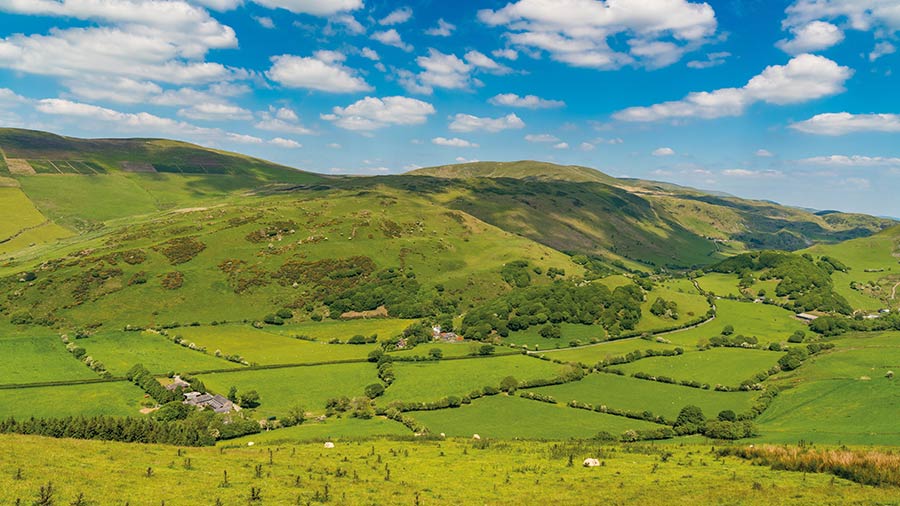Opinion: Once again a ‘land grab’ threatens Welsh livelihoods
 © Bernd Brueggemann/Adobe Stock
© Bernd Brueggemann/Adobe Stock The scars of colonialism run as deep and dark as the boarded-up coal mines here in Wales, where for centuries our country has been exploited for its abundant natural resources and vast mineral wealth by ruthless outsiders who have rarely shown any interest in the lives, language or culture of the people who reside here.
The results are strikingly manifested in the landscape itself, but also within our national consciousness.
See also: Land market round-up – Wales
In the North, we remember the drowned village of Capel Celyn, it’s residents forcibly removed in 1962 and the valley flooded to provide drinking water for Liverpool.
When the Welsh-speaking farming community took to the streets of that city to protest at the loss of their homes, they were spat upon and pelted with rotten fruit by residents.
Some years, when the waters drop low enough, you can still see the ruins of the church and school – a haunting memorial to all those displaced lives.
Further south, in 1940, in the Epynt community 219 inhabitants of 54 farms were given just three months to pack their belongings and find somewhere else to live, so the British army could use the area for training exercises.
The grief-stricken families had to leave the area where their ancestors had worked the land for generations.
They hoped they could return after the Second World War ended, but more than 80 years later the Ministry of Defence still holds on to the land it stole.
There are numerous other examples of these clearances throughout Welsh history, where wealthy men in plush English city offices asserted that it was all in the name of “progress” and “the greater good”, while slowly shaking their heads.
“The people there, well, they just don’t understand,” they said, before the inevitable insult about our language.
And here we are again, this time with investment companies buying up farms for their corporate clients for rewilding or covering with trees for the great carbon offsetting scam.
They could work with us, and together we could dramatically enhance our landscape, making it work for both food production and the environment.
Imagine the kinds of projects that could take place throughout Wales with well-funded, private backing and the will to make it happen.
Here we are again, this time with investment companies buying up farms for their corporate clients for rewilding or covering with trees for the great carbon offsetting scam
But no. Instead, they’ll point out in their promotional material the great acts of green philanthropy they’re undertaking, they’ll continue their mass polluting, and they’ll keep making fortunes for their shareholders. Yes, we do understand.
We understand all too well the long-lasting trauma that these actions cause, and how they echo down the years, because this is our home.
Our children go to the village school, we shop in the local newsagents and butchers, we drink in the pub with our friends and neighbours, we buy and sell in the local livestock market, we employ local contractors, builders, plumbers, electricians, mechanics, vets and agronomists, we support local charities, we’re members of sports teams, clubs and societies, we worship in the chapels and churches, we live, laugh, love and die here, within these farming communities of ours.
And this is what’s at stake. If the Welsh government doesn’t urgently do something to stop these corporates and the land grabs that are already well under way, large areas of our country will be changed irreversibly, and people here will once again be removed from their land, never to return.

